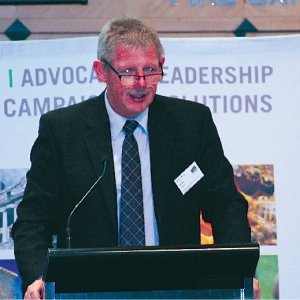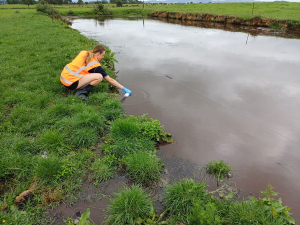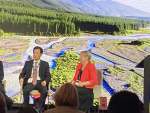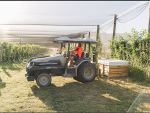The farming industry will have to deal with the “schizophrenic” nature of government and local government policies, Leferink said.
“Believe it or not, a current starting point for water quality benchmarks is pre-human New Zealand – say 900AD,” he said.
The National Policy Standards (NPS) for water require regional councils to set limits on fresh water by 2030. They are meant to engage with communities to establish robust and durable solutions.
But Leferink said some councils saw the item about limits in the NPS and skipped past working with the community. There were tensions in Southland, Otago, Canterbury, Horizons, Bay of Plenty and other regions were at various stages of setting limits
“We seem to have schizophrenic policies from our government and the opposition. On one hand they want lots and lots of export earnings from us.... On the other hand, they’ve put in place policies that give over eager regional council staff a blank cheque guaranteeing their wages as crusaders for the environment.”
He said it felt like “we’ve given the keys of our Caterpillar D8s to the bureaucrats”.
In Holland, home to the tallest people in Europe, the nitrogen content per hectare is about 229kg, in Belgium it is 184 and in Germany, it is 113. Here in New Zealand, it is 46kg/ha. Federated Farmers and other industry partners wanted to pull council planners back to reality.
A limit set by the Otago Regional Council of 10kg nitrogen/ha “puts farmers out of business”.
“Sustainability is balancing the needs of the environment with our economic, social and cultural needs. It is in the RMA and all four need to be in balance to achieve sustainability. I get that.
“My question to government, some regional councils and sections of the media is, do you [get it]?”
Leferink said the way environmental problems in New Zealand were handled was not helpful. “It sets up community group against community group until a commissioner makes a decision, which, in general, is challenged until the money runs out in the Environment Court,” he said.
Canterbury was showing promise with the Canterbury Water Management Strategy, Leferink said. Those communities were truly negotiating outcomes.
Leferink gave two possible future scenarios: first, some Fonterra shareholders remained in New Zealand but most lived on Australia’s east coast. Some 80% of Fonterra’s milk came from offshore, as the Fonterra farms closer to the end consumer.
All this was dairying had become too difficult in New Zealand. Rural communities had dropped below the poverty line, “and if you want to see what that looks like go to heartland America; some of the largest farms sit among dirt poor communities.”
The second scenario “is where we get on the front foot as I mentioned before and really engage with other community groups who understand our roadmap. More importantly, they back us to deliver sustainable, high value agriculture with real outcomes for all.
“In this scenario, a big part of Fonterra’s milk is still produced onshore, and most Fonterra shareholders still live here in thriving rural communities generating tax revenues the cities need for their sustainable transport.”
But Leferink said there needed to be big shifts in how we farm – paradigm shifts in fact. “We can and will do more because agriculture has done that for thousands of years.
“In the meantime, let us grab low hanging fruit without ending up in an environmental or economic pickle barrel. To get to where we want to go, we need a lot of science and new leadership to form smart consensus solutions, as opposed to compromising on complex problems.”









